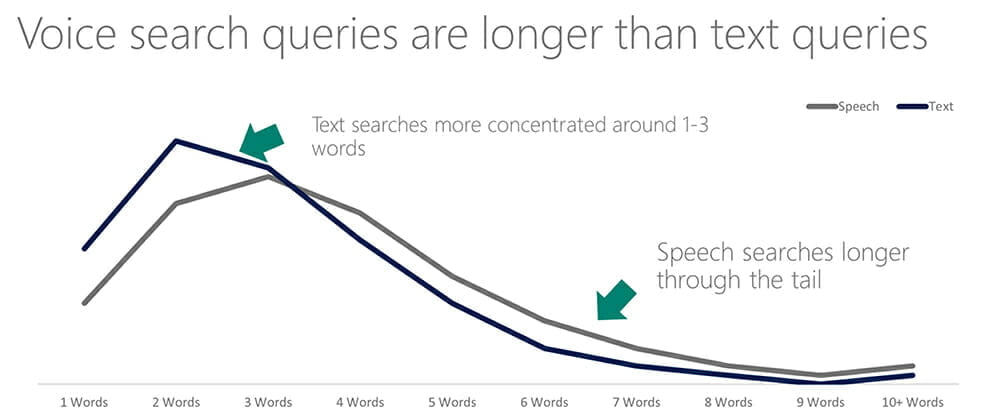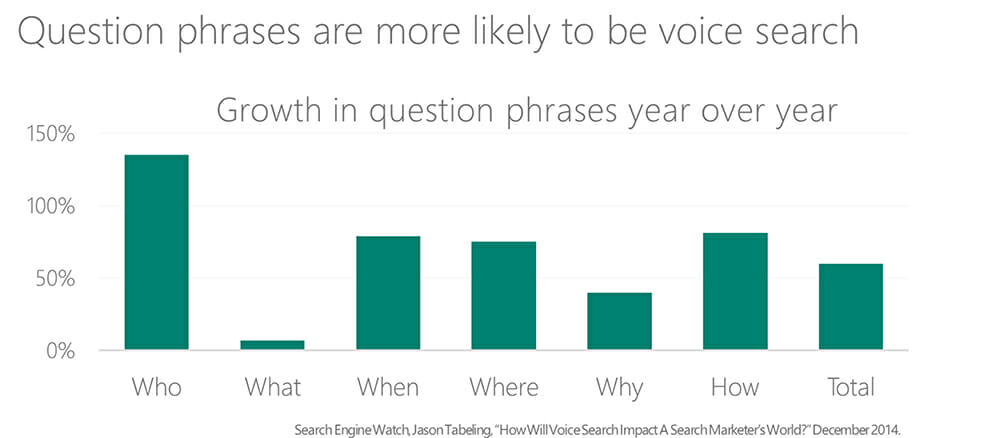In recent times, numerous alarming articles have surfaced, suggesting that voice search could signal the end of traditional SEO. These articles speculate a drastic decline in organic traffic and question the future reliability of SEO.
Contrary to these reactionary views, I approach this topic with optimism. After delving into the subject, it’s clear that voice search isn’t a threat to SEO but rather an opportunity to refine and enhance our existing strategies to align with evolving technological trends.
The digital landscape is inherently dynamic, constantly evolving to offer new and exciting prospects. Embracing the advancements in voice technology is crucial, rather than apprehending it.
Consider these compelling statistics:
- Currently, one in six Americans owns some type of smart speaker.
- A remarkable 40% of adults use voice search at least daily.
- The usage of voice-activated assistants has surged by 128.8% year-over-year.
- Voice assistants are increasingly becoming a part of consumer shopping habits, especially during holidays, with 25% of users incorporating them into their shopping routines.
Perhaps most strikingly, projections indicated that by 2020, voice searches would comprise at least half of all online searches.
These statistics not only highlight the growing relevance of voice search but also underscore the importance of integrating voice search optimization into our broader SEO strategies.
Voice Search Optimisation Has Changed SEO Forever
The dramatic tone of the headline aside, the statistics undeniably point to the significant influence of voice search on future search trends. To adapt, we must recognize that this shift is an extension of the mobile search trend, which has been a focus for years.
We find ourselves at a familiar juncture, now with the added dimension of voice search. The imperative is clear: optimize our websites and content for mobile use, which encompasses:
- Defining clear topic parameters.
- Implementing a dynamic, adaptive, or responsive website design.
- Including a rich array of well-researched, flowing long-tail keywords and phrases.

Even if some of these steps have been taken, or seem superfluous, verifying your website’s mobile-friendliness is crucial, and Google offers a tool specifically for this purpose.
Optimise Your Content For Questions
This approach will significantly aid in refining your keyword strategy. Consider your own use of voice search. It’s unlikely you’d use a solitary keyword like “chocolate pie.” Instead, you’d probably phrase it as a question to your voice assistant, such as, “How do I make a chocolate pie from scratch?” or a more direct query like, “Easy chocolate pie recipe.”
Viewed through this lens, the simplicity of optimizing for voice search becomes apparent. We naturally understand our speech patterns and how we interact with a voice search. Statistically, most users lean towards posing natural, question-based queries in voice searches.

Analyze The SERPs To Help You Optimise For Google Voice Search
By this stage, it’s clear that I’ve developed a keen interest in featured snippets, especially with the rise of voice search. These snippets are perfectly suited for voice search as they typically provide direct answers to queries – aligning well with the question-based nature of most voice searches.
I believe that strategically answering questions is an effective way to optimize for featured snippets. This is reinforced by the “People Also Ask” section, which offers a vast array of question-based content accessible through drop-down menus. Unlike the constrained space of a single featured snippet, the “People Also Ask” boxes offer a continuous stream of information.

Use Structured Data (Schema) When Optimising For Voice Searches
I strongly recommend the adoption of structured markup for enhanced voice search optimization.
Google’s initiative, known as Speakable, leverages schema markup for voice search, enabling publishers to tag parts of their content for voice output. Currently, this feature is available to Google News publishers. The guidelines for Speakable content are informative for all, highlighting Google’s preferences for voice-friendly content: concise, clear headlines or summaries that convey information effectively.
For content marked as Speakable, it’s advisable to format the beginning of articles into distinct sentences for better text-to-speech (TTS) readability. Aim for sections of content that are 20-30 seconds long, or approximately two to three sentences, to optimize for auditory user experiences.
- Content indicated by speakable structured data should have concise headlines and/or summaries that provide users with comprehensible and useful information.
- If you include the top of the story in speakable structured data, we suggest that you rewrite the top of the story to break up information into individual sentences so that it reads more clearly for TTS.
- For optimal audio user experiences, we recommend around 20-30 seconds of content per section of speakable structured data or roughly two to three sentences.
SEO Tools and Resources for Voice Search Optimisation
Optimising for voice search can be time-consuming. Here is a list of tools that will make it easier to effectively optimize for voice search, and leverage these tools and resources:
- Google Keyword Planner: Ideal for discovering voice search-friendly keywords.
- SEMRush: Offers insights into voice search trends and competitor strategies.
- Google Mobile-Friendly Test: Essential for ensuring your site is optimized for mobile devices.
- Schema Markup Validator: Helps validate structured data for better voice search compatibility.
- Google Trends: Useful for tracking popular voice search queries.
- Moz Local: Assists in optimizing for local SEO, a key component of voice search.
SEO Tools and Resources for Voice Search Optimization
Implement these best practices to enhance your voice search optimization:
- Conversational Keywords: Integrate natural, long-tail keywords that reflect how people speak.
- Local SEO Optimization: Keep your local business listings accurate and comprehensive.
- Structured Data Implementation: Use schema markup for clearer content interpretation by search engines.
- FAQ Pages Development: Address common queries related to your business or industry.
- Focus on Website Speed and Mobile Compatibility: Essential for accommodating voice search queries on mobile.
- Stay Informed on Trends: Regularly update your strategies based on the latest voice search advancements.
- Quality Content Creation: Produce engaging content that aligns with typical voice search queries.
SEO Is Vital For Voice Search
Voice search is not signaling the demise of SEO; rather, it’s contributing to its evolution. SEO and voice search are interdependent, with effective optimization incorporating voice as a key component alongside other strategies to strengthen brand presence.
While voice search will undeniably influence SEO, its impact is poised to be positive. The call to action for us is to adapt and innovate within this evolving search landscape, ensuring we continue to flourish in this new era of search technology. This adaptability is essential for thriving in the continuously evolving world of SEO.



















